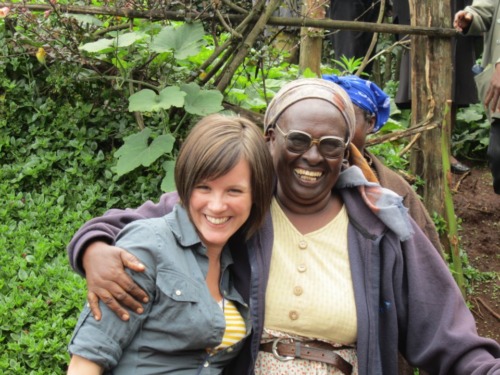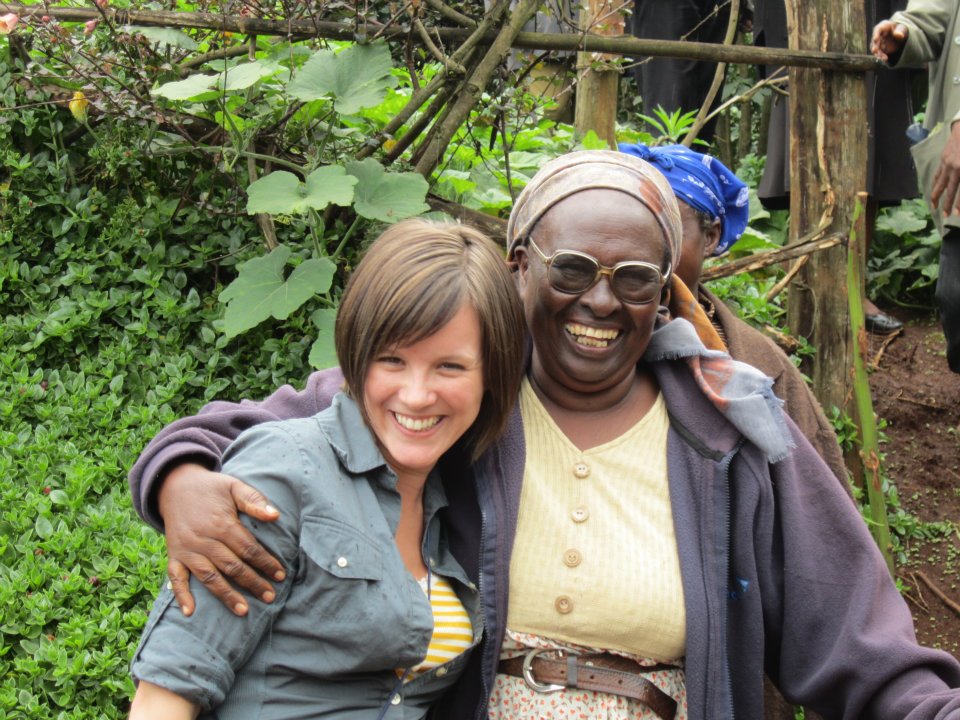
Jessica “Jess” Steffy has tasted the best coffee in the world — literally. She’s co-owned Square One Coffee roasters with her husband, Josh, since 2007 and broke into the specialty coffee scene soon thereafter, heading to trade shows and learning to judge. After passing a test to judge the world level, Steffy became a recurring judge at the World Barista Competition. She’s tasted 5-star courses of espresso from all around the globe — “It’s really a fine dining experience,” she says. All that work in the coffee industry over the past 17 years has certainly given Steffy a taste for excellence. But, as she shared through her extensive knowledge in the industry, a coffee’s taste is only one of its many sides.

Behind it is a complex ecosystem, one stained with injustice and inequality, long working days and “fair” wages that, she says, aren’t very fair at all. “There’s beautiful joy there too,” she says of coffee farming and supply “But that’s where all the conditions are not as they are on the opposite end of the supply chain where we’re sipping lattes.”
The Steffys had an acute awareness of this disparity in the coffee industry before ever working in it.
“We traveled everywhere in the world, doing humanitarian aid work: building new houses, painting, things like that,” Jess says. “All those places had coffee in common.” That wasn’t just a coincidence, either. The highest coffee-producing countries also have high poverty rates, the most undrinkable water, food insecurity, least literacy, and more.
So, when the Steffys acquired Square One in 2007, they already knew they wanted to use their business to make the world a better place. “The only way we knew to do that at first was Fair Trade coffee,” Jess says. But the longer they spent in the industry, the more opportunities they had to buy directly from farmers — a good practice, she explained, to ensure the coffee they purchase is ethically grown and the farmers are paid well for their labor. “In the beginning, when we were establishing these relationships [with farms],” she says, “we would go with our importers to these countries to vet the coffee ourselves.”
There’s a good chance you’re familiar with one of those farms — it’s situated on the sloping hills at La Providencia, in Honduras. Beginning with the very first harvest on the farm, Square One has purchased, roasted and packaged Horizon’s coffee, with all proceeds going back to the community.

When Horizon acquired La Providencia in 2019, the coffee farm was newly planted. Its first harvest came in 2020, and Square One was already bought in. As long-time Horizon supporters, Jess and Josh welcomed the opportunity to engage Square One as an official partner with the organization. “When I heard they had coffee, I was on Google maps looking at the altitudes, looking at what I had purchased from close areas, doing research.” Jess received samples to put through their processes and found it to be similar to their other Central American coffees. “It was very exciting,” she says, “the fact that we were coming alongside, ready to receive the first harvest. It was like someone was coming along just in time with a basket to catch what was already coming, that had been planted a couple years before.”
So far, that harvest has only grown. One and a half years into Horizon and Square One’s partnership has yielded more plants for the farm, doubling its size — that means last year’s 1600 pound harvest is set to be more than 3000 pounds this year! Next year, expenses are expected to decrease by 17% and income to increase by 45%, as the number of plants and price per pound both increase as well.
Square One and Horizon’s shared values made a partnership between the two almost a no-brainer. Horizon’s all about empowerment – and Square One’s motto embodies it.
“It’s simple, but it’s simple enough that it applies to everything: ‘Do good work.’”
At the farm level, that looks like paying a premium for coffee, well above the Fair-Trade standard. Jess explained that because the Fair-Trade price-per-pound is a world standard, it doesn’t take into consideration how far a dollar goes in any particular economy. They’ll instead pay two to three times that standard, which is currently $1.40/pound (or $1.70 for organic varieties). Square One pays $5/pound for the coffee from La Providencia.

“We do our best to make sure we’re supporting good farming practice, good work, throughout the supply chain, and chasing it down to make sure that’s the case. That’s another great thing about working with Horizon — it’s a whole step I get to skip, because knowing [their] values and the work [they’re] doing, I don’t have to ask all those extra ethical questions about labor and treatment.”
Another good practice, the Steffys champion is a simple one, yet so often forgotten. They bring the coffee back to where it came from. “We were surprised to learn that [farmers rarely get to taste their own coffee],” she says. “Even the bakers get the day-old bread, you know?” It may seem like a no-brainer: of course, coffee farmers get to try their own product, right? Not so – Steffy explained that coffee-producing countries export their best beans to be roasted and sold abroad. “Literally everything that can go, goes.” That norm means the most readily available coffee in farming communities is often, ironically, instant varieties like Nesafe.

These extra touches take work. Forging direct connection with farms, personally visiting them with samples of their own roasted coffee — these are the building blocks of relationship. “Some people are like, ‘we’re the coffee hunters,’ and they want to always search for the best of the best,” Steffy says. “We have a way different vibe…we’re interested in long-term partnerships.”
“Sustainability started to concern me. Yeah, there might be some other really great work being spotlighted in that country, but if I’ve been supporting the same farmers for 3 years, they’re starting to budget my purchase into their business. And it would be a big deal if I were buying a significant amount from them and then I just decided, because I tasted something better one day, to just pull that cord. I look at every purchase not just as a transaction but as a potential long-term relationship.”
It’s easy to justify investing in a relationship: people matter! But there’s something else going on here, a deeper reason and a higher stake.
“Whenever you can buy fair-trade and organic products,” Steffy says, “there’s a reason for it.” Directly supporting family coffee farms, and personally vetting them, is an active push toward equity in an industry roiled with injustice.
Coffee is consistently ranked as one of the top commodities in the world, often ranking first among agricultural goods. The industry is worth $18 billion annually in the US alone, yet, that money doesn’t produce widespread community flourishing. Instead, the top coffee producing countries have some of the highest rates of poverty, as well as orphaned and vulnerable children.
Square One’s already sold out on using coffee as an agent for good. And here at Horizon, we’re all-in on restoring children to the beautiful life they were created for. Trailblazer coffee is a collaboration with a vested interest in both.

And when it comes to the coffee itself — well, you’ve probably guessed it. There’s good work there, too. Listening to Jess explain the process of deciding how to roast a batch of beans reminded me of the way a chef might carefully consider how to prepare a dish to feature an August tomato harvest, or perhaps how an artist would layer color and texture onto a canvas, knowing it will uniquely please the painting’s recipient.
Which is to say, she listens to the beans.
Jess ensures every bag of Square One coffee is roasted to its optimum flavor, which means beans from the same farm may require a different roast year-to-year. That kind of work takes dedication and time, but it results in a specialty coffee product that is, quite literally, the cream of the crop.
It bears repeating: a coffee’s taste is only one of its many sides. There is untold opportunity to do good work in its world — as Jess says, the presence of disparity in the process means we haven’t figured it out yet. Every injustice stands as an invitation for redemption: one farm, one family at a time. Square One’s participation involves daily, good work, and the eyes to perceive it.
“’In my 6-foot bubble, what does good work mean today?’ That mindset has made us stand out in what we do,” she says. “We used to not count all the little things as good work – like, we had to be winning an award. But I think one of the pandemic’s gifts to us was to shift our minds and ask, ‘what did I do today that was good work? I did good things today.’”

